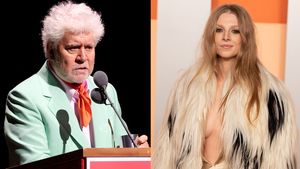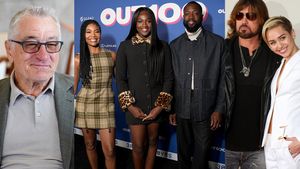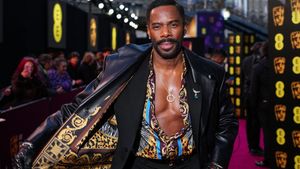The dictionary just got a little less boring!
The words “polysexual,” “autosexual,” “amalgagender,” “multisexual,” and “gay marry” have all been added to Dictionary.com as part of the 566 new words in their fall update.
On top of adding a slew of brand new words, the popular dictionary website also added more than 2,000 new and revised definitions for existing words in an attempt to keep up with the “always-evolving nature of English.”
Many of the new words added relate to relationships, pop culture, artificial intelligence, as well as gender and identity within the LGBTQ+ community.
“Gender and identity have been particularly dynamic, and productive areas of language change in the past 15 years or so,” John Kelly, vice president of editorial at Dictionary.com, said in an interview with NBC News. “Whether it be socially or medically, there is a vocabulary component that is emerging, breaking through into the mainstream, that people need to know that they’re going to encounter.”
So what do the new words mean?
Polysexual: noting or relating to a person who is sexually attracted to people of various genders, but not necessarily to people of all genders.
Autosexual: noting or relating to a person who primarily feels sexual attraction to and desire for themselves, as opposed to other people.
Amalgagender: noting or relating to a person whose gender identity is linked to or impacted by the fact that they are intersex.
Mulitsexual: noting or relating to a person who is sexually or romantically attracted to people of more than one gender, used especially as an inclusive term to describe similar, related sexual orientations such as bisexual, pansexual, omnisexual, etc.
Gay marry: To marry a person of the same gender.
This isn’t the first year that the company has added words relating to sexuality and identity, last year “demisexual,” “neopronoun” and “aromantic” were on the list of new words.
At a time when anti-LGBTQ+ legislation is sweeping the nation and conservatives continue to be critical of the use of pronouns other than “he/him” and “she/her,” language connected to LGBTQ+ identity is often met with hate or derision.
“Language really is a lightning rod,” Kelly told the outlet. “All of a sudden it can feel, when these new words get announced, that there’s an agenda behind it. I want to be clear: There isn’t an agenda; there is documentation.”
The company is also striving to update already existing definitions by replacing gendered pronouns with “they/them” or by removing them altogether.
“Not only does ‘him or her’ reduce the options in the example to a binary gender, but it also is harder to read and understand,” Kelly said.
The definition for “volunteer” was originally, “A person who voluntarily offers himself or herself for a service or undertaking,” but has now been changed to, “A person who offers to perform a service or undertaking.”
“We don’t go about our lives going, ‘Hey, I’m looking for some volunteers, you know, someone who offers himself or herself to do that,’” he said. “That construction is cumbersome and exclusive and we were overdue to make that change across our dictionary.”
This year, “queerbaiting,” “pinkwashing,” “deadass,” “nepo baby,” “crypto-fascism,” and “sextortion” were also among the new words added.































































































































